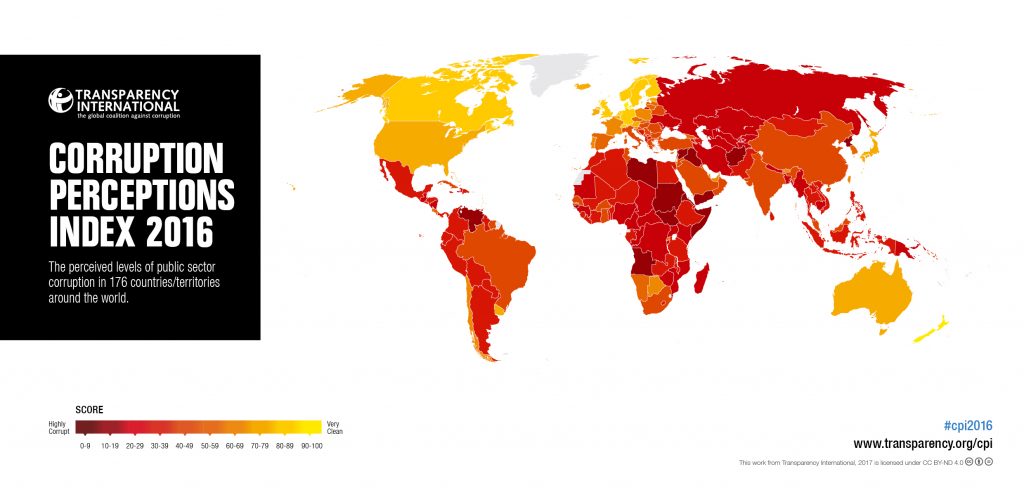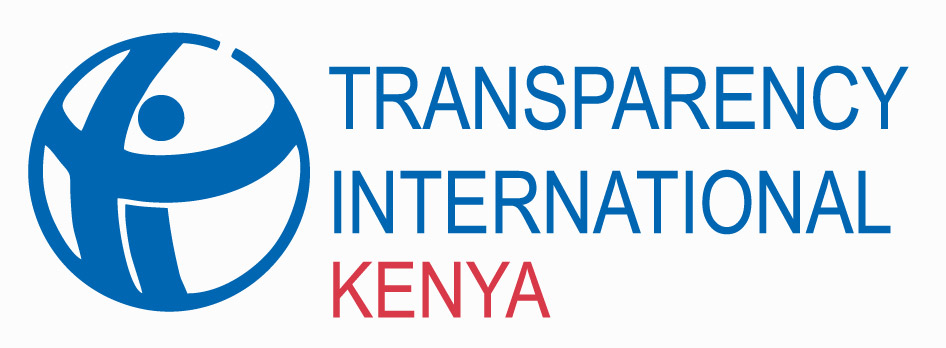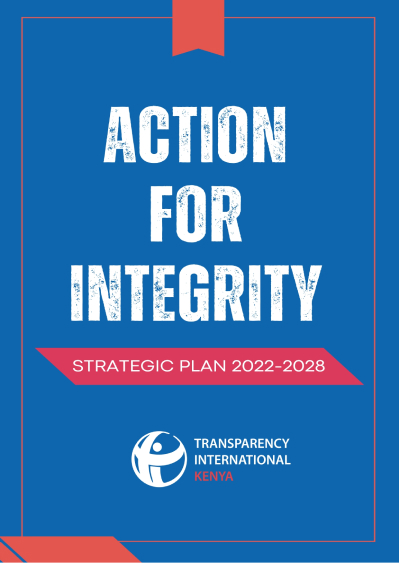Nairobi, 25 January 2017 – Kenya has declined in rank as it continues to post a poor score in the global Corruption Perception Index (CPI) 2016 released today by the Transparency International movement. Kenya scored 26 on a scale of zero to 100 (with zero perceived to be highly corrupt, and 100 very clean), compared to a score of 25 in 2015. Kenya is ranked at position 145 out of 176 countries and territories included in the latest edition of the CPI. Kenya’s score is below the global average of 43 and Sub Saharan Africa’s mean of 31. Kenya had a score of 25 in 2014 and 27 in 2013 and 2012. This indicates that despite the rhetoric of anti-corruption, the fundamental in the fight against corruption have not yielded significant dividend. The CPI measures the perceived levels of public sector corruption in countries and territories worldwide and is based on expert opinion.

Kenya occupies a position among the last 20 countries on the index. “For ten years now, Kenya has hardly broken the ceiling of the last quartile in the CPI ranking. In a year of elections when voting is supposed to force change in the manner in which important public issues are dealt with, the challenge of corruption can no longer be ignored“ said Samuel Kimeu, Executive Director, TI Kenya.
“Corruption has become more persistent and consistent in recent years. Its not surprising that Kenya continues to drop on the CPI. In 2016 more corruption scandals came to light with hardly any resolution to existing ones. There are no indications that this trend will be reversed in the circumstances“ added Mr. Kimeu.
Grand corruption cases that are so prevalent in Kenya now show how collusion between the political and economic elite deny the national economy billions of shillings that are diverted to benefit a few at the expense of many. This kind of systemic grand corruption violates human rights, prevents sustainable development and fuels social exclusion.
Global outlook
2016 showed that around the world systemic corruption and social inequality reinforce each other, leading to popular disenchantment with political establishments and providing a fertile ground for the rise of populist politicians, eloquent in anti-corruption rhetoric while cementing the existing corruption structures.
69 per cent of the 176 countries on the Corruption Perceptions Index 2016 scored below 50, on a scale from 0 (perceived to be highly corrupt) to 100 (perceived to be very clean), exposing how massive and pervasive public sector corruption is around the world. This year more countries declined in the index than improved, showing the need for urgent action.
Denmark and New Zealand perform best with scores of 90, closely followed by Finland (89) and Sweden (88). Although no country is free of corruption, the countries at the top share characteristics of open government, press freedom, civil liberties and independent judicial systems.
For the tenth year running, Somalia is the worst performer on the index, this year scoring only 10. South Sudan is second to bottom with a score of 11, followed by North Korea (12) and Syria (13). Countries at the bottom of the index are characterised by widespread impunity for corruption, poor governance and weak institutions.
Regional Outlook
Within East Africa, Kenya came third after Rwanda and Tanzania who scored 54 and 32 respectively and were ranked 50 and 116 globally. Uganda was ranked 151 with a ascore of 25. Burundi was ranked last in East Africa with a score of 20.
“In too many countries, people are deprived of their most basic needs and go to bed hungry every night because of corruption, while the powerful and corrupt enjoy lavish lifestyles with impunity,” said José Ugaz, Chair of Transparency International.
“We do not have the luxury of time. Corruption needs to be fought with urgency, so that the lives of people across the world improve,” added Ugaz.
What needs to be done
Amidst the many scandals that came to light in 2016, the Kenyan people are fed up with corruption and impunity and demanded good governance, accountability and integrity with a louder voice. This voice and actions need to get louder and stronger in order to emancipate Kenya from the shackles of corruption. With the elections coming up in seven month’s time, its is time forge a common understanding that integrity in pubic office matters and use the vote to enforce this understanding. It is clear that only eternal vigilance and sustained anti-corruption action from citizens will yield the desired results.
Technical fixes to specific anti-corruption legislation are not enough. What is urgently needed are deep-rooted systemic reforms that even up the growing imbalance of power and wealth by empowering citizens to stop the widespread impunity for corruption, hold the powerful to account, and have a real say in the decisions that affect their daily lives.
These reforms must include the disclosure through public registries of who owns companies as well as sanctions for professional enablers who are complicit in moving corrupt money across borders.
Sign the Declaration Against Corruption here!
Media contact: Mercy Gachengo, 0705870053 or email: mgachengo@tikenya.org



